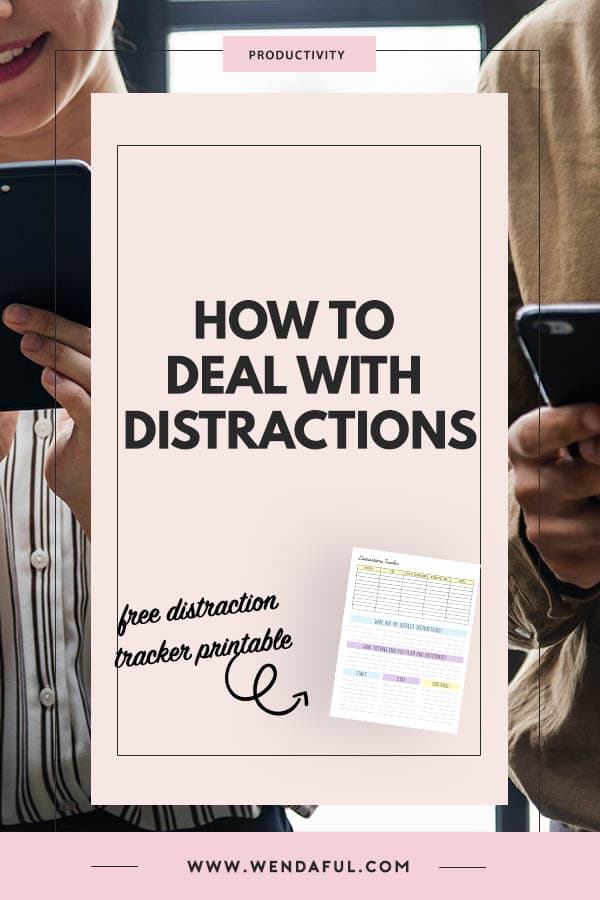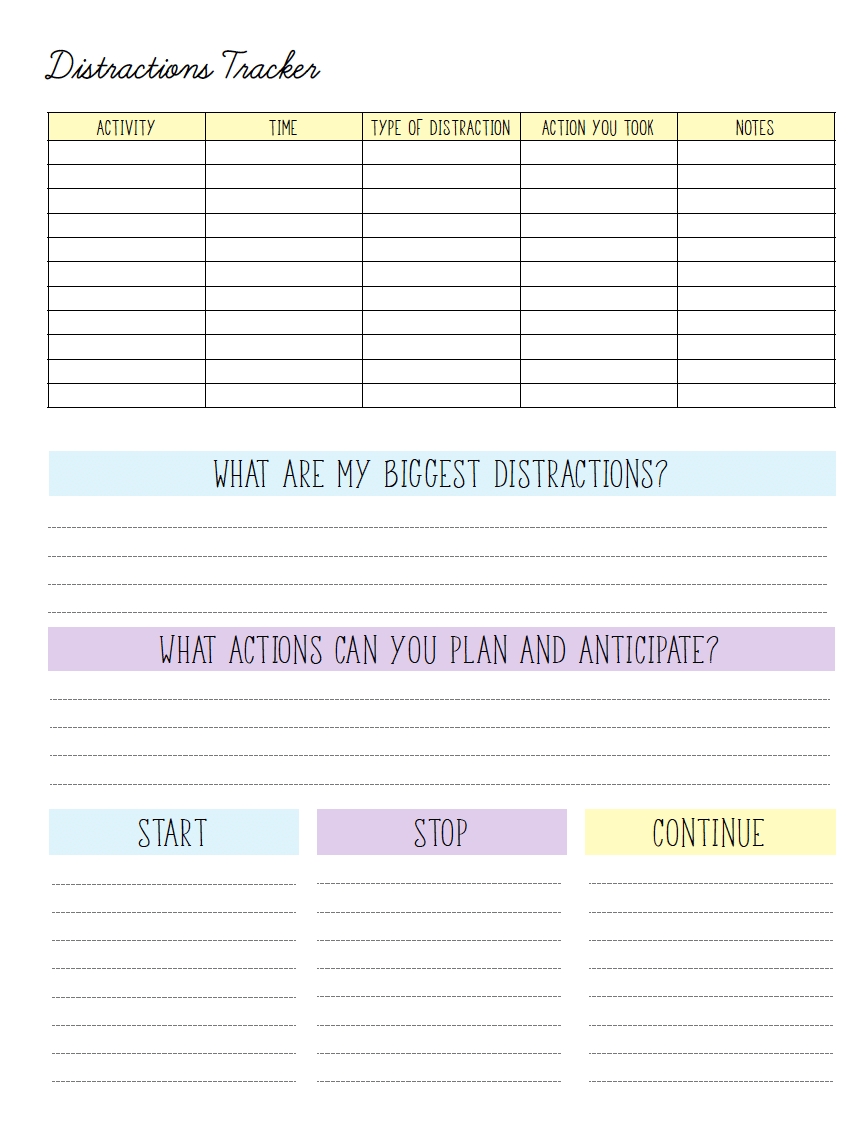
Distractions cost us time. They keep us from getting work done. They keep us from spending quality time with our loved ones. They can be incredibly frustrating at times. After a day full of distractions, you’re ready to quit feeling like you’re not getting anything done and start taking control. You’re ready to do something about it, but where do you start?
Distractions will only happen if you let them. You can control them, you are able to cut most of the distractions out of your life. Follow these tips and you’ll be sure to get more done and deal with all the distractions in your life better!
Table of Contents
Become aware of your distractions
The first step to taking control of distractions is becoming aware of them. We don’t realize how much time is wasted with distractions anymore. To stop distractions from taking up our day we first have to get clear about what the distractions and problems are in order for us to solve the problem. What distractions are commonly interrupting us? Our phones pinging every 10 minutes? Someone stopping by our desk every 20-30 mins? Are you switching tasks every time an idea pops in your head? Start paying attention and create a running list of things that distract and disrupt your day. After a week, you’ll find patterns of the things that are distracting you from getting things done, whether it’s a physical distraction, mental distraction, or environmental distraction. I’ve included a distraction tracker in this blog post for you to download here:

Identify your high-concentration tasks & schedule them first thing
Decide on the tasks that require the most willpower and attention. The one where you will easily get distracted and procrastinate on. After figuring out those tasks schedule them first thing in the morning. Mornings are great for getting stuff done before people start bothering you, before you get tired or lazy before anything else can take your attention away.
Make Time for Your Little Distractions
If your phone or email is a constant distraction schedule time to check those twice a day. Many people think these small notifications or quickly checking an email throughout the day isn’t a big deal because it only takes a minute or two, but in fact, they have a huge impact on your overall productivity. It disrupts your flow and makes you lose concentration. It’s much better to stay focused for a block of time rather than stopping and going continuously throughout the day. See more about batching tasks in this blog post here.
Schedule time for these little distractions. Set aside time each day say 30 minutes to check social media, emails and make calls. You’ll feel guilt-free while you are scrolling through Instagram, and know that you aren’t getting distracted from your focus work.
Don’t start your day with your phone
How many mornings were wasted because you woke up and picked up your phone. You went from checking your email, to checking fAcebook, to checking Instagram, then to search something on Google, and next thing you know an hour or two has already passed. Next time you wake up, stop yourself from reaching your phone and instead get up and look at your planner instead. What’s the #1 thing you need to get done? Do that instead, and you’ll find that your day will already be much more productive.
Control your notifications
Similar to my tips above about our phones distracting us, keep it controlled! The best way is to turn off notifications on your phone. You can go into settings and set your notifications to turn off for specific apps. A new feature on Apple is that you can now set time limits, a screen will pop up if you’ve gone over your time for that day. I set mine up so now when the screen pops up I just put my phone down.
Clear the clutter
Our environment can be a huge distraction in our days. If your place is a mess it can really be hard to focus because you’re going to want to clean it up first. Try to keep your desk as minimal as you can. The more clutter that’s around the more you’re likely to be reminded of something else and that will make you lose focus. A clutter-free workspace makes it easier to stay focused on the task at hand.
Create boundaries
Designate times in your schedule as interruption-free work times. If you work in an office block out your time so there are no meetings or put headphones on so people can see that you are busy. Tell your family and friends you’re busy from this block of time.
If you feel like you are busy and don’t have any time, then you need to learn how to say no! Say no to new projects, or requests from other people. Tell them you would love to help but right now you cannot.
Use a distraction notepad
Do you constantly get distracted by something on your mind. For example, you’re busy working on a big project and suddenly you remembered that you had to schedule a doctor’s appointment and you’re scared you’ll forget again so you stop your focus on your project and you make the call. Instead of wasting time and losing your focus use a distraction notepad! A distraction notepad is simply a place to jot down anything that pops in your mind that has nothing to do with the task at hand.
Make it simple to pick up where you left off
Distractions are inevitable, so when you’re attention is pulled away from your task, make it as simple as possible to pick up where you left off.
It will be a lot easier to deal with distractions if you can first figure out why you’re always getting distracted, then strategize how you can work around them. I hope these tips helps you to stay focused and avoid distractions so you can get more done!

Thank you for this! I worry about distractions all of the time as a teacher and parent and someone who is trying to be productive in my personal and professional life. You have some really solid ideas here!